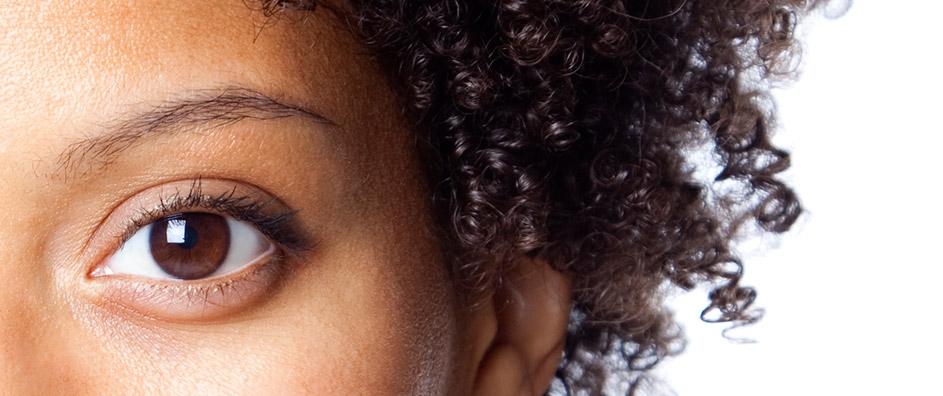The views expressed in our content reflect individual perspectives and do not represent the authoritative views of the Baha'i Faith.
Abdu’l-Baha gave Pocahontas Pope a special prayer.
In the previous article, we met Pocahontas Pope. We also described how she first learned about the Baha’i Faith from Pauline Hannen. This took place in 1905, in Washington, DC.
In the context of Jim Crow America, this story is simply extraordinary—and worth retelling.
History is based on “primary sources” like census reports and newspaper accounts. Pocahontas Pope was not famous, but a few newspaper articles mentioned her, one calling her “intensely religious.”
Here is an account—one that historians might call “anecdotal”—that substantiates and therefore authenticates the high estimate by the previous reporter:
Mrs. J. W. Pope, who has been in the city [Washington DC] since Christmas, has returned to her home in Rich Square, N.C., for the summer. During her stay in Washington, Mrs. Pope has won many friends. Mrs. Pope was deeply interested in all matters of interests to the race and was an energetic worker in the Second Baptist Lyceum. Just before the close of the Lyceum, Mrs. Pope read a paper on race conditions, which met with unanimous endorsement and established her as a lady of high literary attainments. – The Colored American, 21 Jul 1900, Sat., First Edition. p.16.
Let’s now get to the story of Pocahontas’ special prayer—especially since the journalist back then had no clue as to the very beginnings of the global social phenomenon today known as the Baha’i Faith, just taking root in America over a century ago.
Back then, new followers of the Baha’i Faith often wrote directly to Abdu’l-Baha, who visited America and Canada in 1912. Abdu’l-Baha led the Baha’i world from Baha’u’llah’s “ascension” in 1892 until Abdu’l-Baha’s own passing in 1921.
We know that Pocahontas must have written to Abdu’l-Baha in the Holy Land, because she received a “Tablet” (special letter) from Abdu’l-Baha in reply.
The message of Abdu’l-Baha’s reply letter is relevant today. Yet over a century ago, this letter was far more than merely relevant, or even of “topical” interest. Abdu’l-Baha’s letter was nothing short of radical by the standards of that day and age.
This letter, by sheer moral force, set in motion what would prove to be the most effective antidote to the racist Jim Crow mentality. Written in both Persian and Arabic, Abdu’l-Baha’s letter begins as follows:
He is God! O maidservant of God!
Render thanks to the Lord that among that race thou art the first believer, that thou hast engaged in spreading sweet-scented breezes, and hast arisen to guide others. – Abdu’l-Baha, A Compilation on Women, p. 6.
There has been some discussion and perhaps, speculation, over what this phrase, “among that race thou art the first believer,” actually means. This much can be said: Pocahontas Pope was the first African-American to embrace the Baha’i Faith in Washington, DC.
But it is also possible that this African-American woman may have had some Native American ancestry. This would render her among the class of “Red-Black” Americans of racially-mixed ancestry.
Both readings are possible. In what is translated as “among that race,” Abdu’l-Baha uses a different word for race: “qaum.” The more common term is: “jins,” as in “jins-i bashar,” the “human race.” The implications of this is that, by qaum, Abdu’l-Baha may be referring to something other than “race,” such as “tribe” or “ethnicity.” Indeed, Steingass defines this word, qaum, in part, as “people, nation; tribe, family, kindred; a sect” (A Comprehensive Persian-English Dictionary, p. 995).
Abdu’l-Baha writes further:
It is my hope that through the bounties and favours of [Baha’u’llah] thy countenance may be illumined, thy disposition pleasing, and thy fragrance diffused, that thine eyes may be seeing, thine ears attentive, thy tongue eloquent, thy heart filled with supreme glad-tidings, and thy soul refreshed by divine fragrances, so that thou mayest arise among that race and occupy thyself with the edification of the people, and become filled with light.
In this context, it appears that Abdu’l-Baha had the African American community in mind. After all, Pocahontas Pope had presumably written Abdu’l-Baha from her home in Washington, DC, where there was a sizable African-American community.
At that time, Native Americans were primarily relocated to, and sequestered on, various reservations, administered by the federal Bureau of Indian Affairs. The phenomenon of the “urban Indian” (especially those Native Americans who did not belong to federally recognized tribes) was not part of the demographics of that day and age.
Abdu’l-Baha continues:
Although the pupil of the eye is black, it is the source of light. Thou shalt likewise be. The disposition should be bright, not the appearance.
It goes without saying that people in that day were judged largely—and in many cases predominantly—by the color of their skin. This is why Abdu’l-Baha invokes Baha’u’llah’s metaphor of the “pupil of the eye” with reference to people of African descent.
Their suffering, broadly and collectively speaking, had endowed African Americans with an increased capacity for empathy, compassion, and a yearning for justice and equality which, in turn, proved to be of such great importance to the awakening of white America to the evils of slavery and its legacy of racism and social inequality.
Obviously, the name “Pocahontas” is of Native American heritage. The fact that Pocahontas Pope was given this name has given rise to much speculation. But the fact of the matter is that “Pocahontas” was a common name at that time.
Notwithstanding the commonality of “Pocahontas” as a given name, this certainly does not rule out the possibility of her “Red-Black” ancestry. If that turns out to be the case with respect to Pocahontas Pope, then the “pupil of the eye” metaphor could just as well apply to Native Americans, and universalized to other oppressed peoples as well.
Abdu’l-Baha concludes his loving, compassionate and inspiring letter as follows:
Therefore, with supreme confidence and certitude, say:
[Prayer in Arabic:]
“O God! Make me a radiant light, a shining lamp, and a brilliant star, so that I may illumine the hearts with an effulgent ray from Thy Kingdom of Abha.”
Imagine how special Pocahontas Pope must have felt on receiving this very personal, yet universal, “Tablet” from Abdu’l-Baha. Other Baha’is, of course, received replies from Abdu’l-Baha as well. But letters in which Abdu’l-Baha revealed a special prayer for the recipient were comparatively few.
This letter to Pocahontas Pope is yet another example of Abdu’l-Baha’s application of Baha’u’llah’s racially uplifting and empowering “pupil of the eye” metaphor. The use of this image, and its application to ideal race relations, is as inspiring as it is consistent.
Although, today, scholars disavow and repudiate anything that hints of “essentialism,” it is still relevant and meaningful to recognize the common history and experience of African Americans, especially since that legacy gives rise to a shared and heightened sense of empathy and resolve that inspires us to do our part in fostering ideal race relations in America and around the world.
















Comments
Sign in or create an account
Continue with Googleor